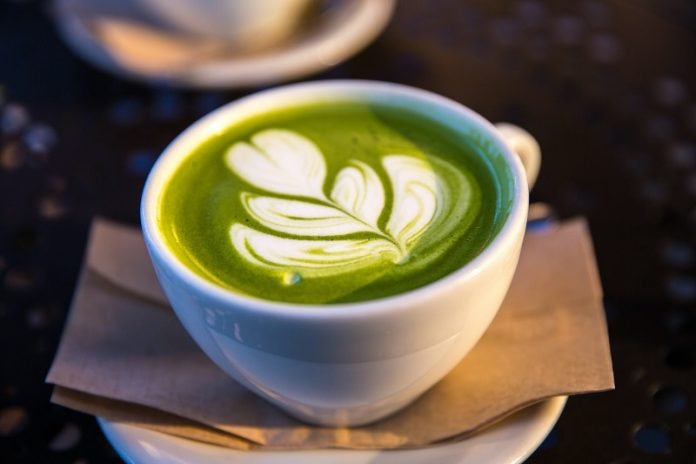
Although matcha tea has been around for centuries, it’s recently increased in popularity.
This may be due to its favor with celebrities such as Jennifer Aniston and Gwyneth Paltrow, and because of its purported health benefits – with many claiming matcha has even greater benefits for our health than green tea does.
All green tea comes from the same plant: Camellia sinensis. Green tea (known as sencha) is produced from the unfermented leaves of this plant.
Matcha tea (known as tencha) involves shading the plant from less intense sunlight, then harvesting, steaming, and drying the leaves before they’re ground into a powder.
So whereas green tea is consumed as brewed dried leaves, matcha tea involves consuming whole-leaf powder – which means it may provide more nutritional benefits than a regular cup of green tea.
However, research into matcha is just beginning – meaning there’s still a lot we don’t know yet about just how beneficial it may be.
Benefits of green tea
Green tea is thought to have many health benefits. This is due to certain compounds found in green tea called polyphenols, which have antioxidant properties – meaning these compounds may interact with other unstable molecules that can cause damage to our cells.
The polyphenols in green tea have been associated with modest reductions in cholesterol levels and blood pressure in humans.
Furthermore, two meta-analyses suggest that drinking green tea may reduce the risk of developing heart disease.
It’s thought that specific polyphenol compounds called catechins found in green tea may contribute to its protective effects.
Other studies suggest that green tea may lower the risk of certain types of cancer as these catechins may interfere with cancer cell growth.
Additionally, green tea may also affect the body’s metabolism in the short term by enhancing the body’s ability to burn fat during exercise somewhat. In the longer term, green tea may potentially influence changes to the expression of certain genes associated with fat burning.
This could mean that regular green tea consumption may, in part, modestly influence our ability to lose fat over time, especially in combination with exercise.
How matcha measures up
A typical cup of green tea might contain about 70mg of catechins, which is about double that of black tea (although many factors, such as water temperature and how long the tea is brewed, can affect this).
Matcha tea, however, could contain more than three times the amount of catechins per serving, with one study reporting a staggering 137 times more catechins than regular green tea.
This means matcha contains more antioxidants than other tea, which could explain its benefits for cardiovascular and immune health.
And because you’re consuming the whole tea leaf, matcha may contain more potent amounts of other natural ingredients – including amino acids such as L-theanine.
In both animal and human studies, the L-theanine in matcha has been associated with both reduced anxiety and stress.
Matcha also contains higher levels of caffeine by weight – around 20-40mg per gram, which is 2-4 times higher than that found in an equivalent amount of coffee beans.
As such, recent studies investigating matcha have looked at the combined effects of its catechin and caffeine content.
Two recent studies looking at women in their late twenties found that drinking matcha tea modestly improved the amount of fat burned while walking by up to 35%.
These results are broadly similar to other studies conducted using green tea extract, suggesting that matcha is just as effective, but not more so, than green tea.
As such, matcha may provide some additional benefits when used alongside exercise. But it will be important for future studies to investigate whether matcha also boosts the effect of exercise in other groups.
Other possible benefits
Matcha has also been shown to improve alertness, decision-making, memory and focus.
In one study, participants who were given 4g of matcha powder as a drink scored better on cognitive tests looking at attention, information processing, reflexes and memory compared to those who were given a placebo.
Other research also indicates that several cups of green tea a day may prevent age-related cognitive decline.
This may be, in part, linked with the stress-reducing effects of L-theanine, as well as a potent catechin called “epigallocatechin gallate” or EGCG which is particularly high in matcha.
So while it’s likely matcha will have a similar cognitive benefit as green tea, it will be important for future studies to look at matcha more specifically.
Research in this area is still young, and more studies – particularly with adults – are needed to truly understand just how beneficial matcha may be.
But if you’re someone who likes to start their day with a cup of tea or coffee, you may want to consider switching to matcha.
Not only is this a great way to get your caffeine fix, but it may also potentially have other benefits to your health.
Between 2-4g of matcha a day (equivalent to 2-4 cups) may be enough get some of these reported benefits over time.
Written by Justin Roberts, Henry Chung. The Conversation.
If you care about nutrition, please read studies about breakfast linked to better blood vessel health, and drinking too much coffee could harm people with high blood pressure.
For more information about health, please see recent studies about unhealthy habits that may increase high blood pressure risk, and results showing green tea and coffee could help reduce death risk in diabetes.



